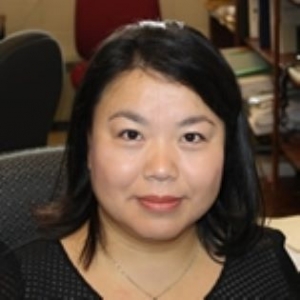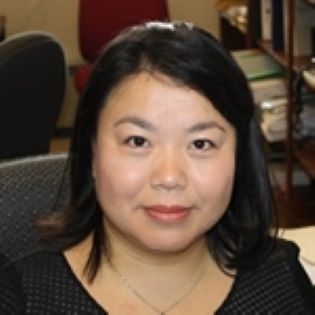Ms. Misa Yamamoto is a senior lecturer of Japanese in Appalachian State University’s department of Languages, Literatures and Cultures. We spoke with Ms. Yamamoto about language learning and traveling abroad as a language learner.
Throughout our conversation, Ms. Yamamoto displayed empathy and understanding for students learning a new language and traveling to unfamiliar countries. She says that she sees much of herself in her students. Ms. Yamamoto’s college major at the university she attended in Japan was English language and she took a minor in teaching Japanese. She once had an internship in Minnesota, giving her an experience not unlike many of her students when they travel abroad. After completing a postsecondary degree in Japanese education in San Francisco she moved to Boone and began teaching at Appalachian State. Ms. Yamamoto says that her early years in the US were similar to the experiences of her students who travel to Japan: culture shock and language difficulties often left her exhausted. For instance, she had to overcome shyness and frequently ask for clarification at meetings. Fortunately, many supportive and understanding colleagues helped her along the way.
One of the things that Ms. Yamamoto loves about teaching Japanese is that students often begin with no knowledge of the language. For example, most students start their first Japanese class being unable to read any Japanese characters at all, but by the end they are able to recognize Japanese writing as meaningful characters, not abstract symbols. Though students sometimes feel challenged by the difficulty of learning Japanese, Ms. Yamamoto points to their incredible progress to encourage them.
In our discussion, Ms. Yamamoto made note of several benefits to studying or working abroad. On the one hand, language learners can better understand just how little they know. This can be a great motivator for students to redouble their efforts, as they need to improve their abilities to meet their language learning goals. At the same time, being surrounded by a different language and culture itself is a great aid to learning. People who live in other countries often find their communication skills improving, but in the language they study and in their own native language.
One major barrier for students hoping to study abroad is cost. Fortunately, Appalachian State has a number of resources that can help students achieve their international study goals including the office of Nationally Competitive Scholarships (NCS). Ms. Yamamoto mentioned that this office provides several valuable services for students. For one thing, Assistant Director Johnna Reisner DeSantis visits Japanese classes to inform and encourage students regarding scholarships like the Gilman Scholarship or the Freeman-ASIA Scholarship. Both of these externally funded scholarships grant funding to undergraduate students with a demonstrated financial need who wish to study abroad. Furthermore, NCS advises students as they apply to these and other scholarships and programs. For instance, the office provides feedback on application essays. NCS is not singularly focused on undergraduate scholarships. For example, the office also advises students applying for the Japan Exchange and Teaching (JET) Program, in which graduates serve as teaching assistants in Japanese public schools. Ms. Yamamoto states that the application process for these scholarships and programs is itself valuable for students. She notes that these applications help student learn how to reflect on their own lives and values
Ms. Yamamoto’s advice for those considering studying abroad or applying for scholarships is that “it’s OK to fail.” While failure is unpleasant, it helps us learn and become stronger in the future. Try to overcome the fear of failure and worries about competing with others. If you are disappointed, learn from it, but at the same time, recognize your own abilities and put forth your best effort.
Students interested in studying abroad can make an appointment with the Office of International Education and Development through their website or go to their walk-in advising hours on Wednesday 2-4pm.
Students can learn more about the Gilman Scholarship here, the Freeman-ASIA Scholarship here and the JET program here. Those ready to start applying can make an appointment with App State’s office of Nationally Competitive Scholarships.
###
About Nationally Competitive Scholarships
Nationally Competitive Scholarships (NCS) works with the Appalachian community to recruit and support students for nationally competitive scholarships and fellowships, including those that support research, teaching and critical language learning. This is achieved with outreach, mentorship and advising throughout the entire application and selection process. NCS is committed to helping undergraduate and graduate students find ways to connect their Appalachian education to their future endeavors through scholarship opportunities. Learn more at https://ncs.appstate.edu.
By James Holden
January 16th, 2024
BOONE, N.C.

